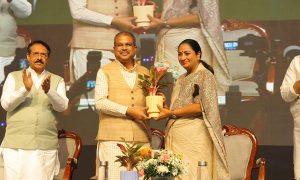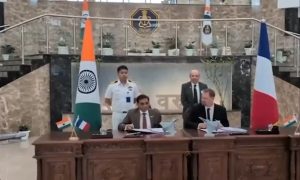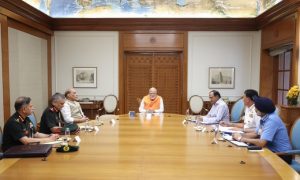Imagine a team of 23 that will be in open waters just for the wellbeing of our society to get a better understanding of the world using science. Yes, this is a real thing as CISR- National Institution of Oceanography has launched a 90-day expedition to the Indian ocean which will conduct different researches and will collect samples for genome and proteome mapping of microorganisms present in the ocean water and sediments.
The team will be cruising through CSIR-NIOs Research Vessel Sindhu Sadhana. The team of researchers is led by Samir. R. Damare. The Expedition team consists of 23 scientists that include 6 women scientists. The task is not easy as the team will cover over 18,520 kilometers in the Indian ocean to collect samples.
First of its kind research from India
The research is the first of its kind in India. The research aims to understand the genetic of the different organisms in different regions of the Indian ocean. The results of the research will help in understanding the biochemistry of the organism present in the ocean and sediments. Further, the results will help in better undertaking oceans response towards climate change and ocean pollution.
The course of the Expedition
The team will be cruising through the Indian Ocean from India’s east coast to Australia and then onward towards Port Louis in Mauritius and up to the border of Pakistan. The team will look to unravel the mysteries in the Indian Ocean by gathering samples for genome mapping of microorganisms. The researchers will also collect samples from various stretches of the ocean at an average depth of about 5 km.
How will the samples be collected?
At various stages and stretches, samples will be collected by lowering a Kevlar cable of up to 8 km with a set of 24 Teflon coated bottles to collect samples. The Kevlar cable and the Teflon coating will ensure the quality of samples. The samples will be stored at -60 degrees Celsius with the help of liquid nitrogen. While some samples will be tested at six laboratories on the ship only while several other samples will be brought back to NIO for further studies and analysis over the next three years.
Benefits of the Research
This research will open doors for more researches as it will add to our current understanding of oceans. It will surely help scientists to understand the internal working of the ecosystem of the Indian Ocean. The expedition will also Identify Mineral Concentration in the Indian ocean giving a clearer picture of which minerals or elements have a greater concentration across the Indian ocean.






















 WhatsApp us
WhatsApp us